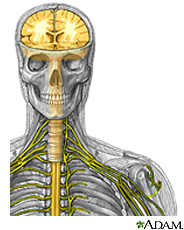Neuropathy
Column #69 December 9, 2016
Twenty percent of all Americans may have peripheral neuropathy before they die. It’s a primary reason why seniors fall. Generally, the medical community claims peripheral nerve disorders are considered incurable. Therefore they only treat symptoms or possible causes of neuropathy.
There are over 100 named peripheral nerve disorders that affect one or more nerves. The causes are associated with diseases (diabetic nerve issues), virus infections (Guillain-Barre syndrome), nerve compression (carpal tunnel syndrome or thoracic outlet syndrome), or complex regional pain syndrome and brachial plexus injuries (injuries). Some people are born with peripheral nerve disorders.
Animals have networks of peripheral nerves outside of the brain and spinal cord. Peripheral nerve disorders produce electrical-like static, distorting or interrupting the messages between the brain and the rest of the body. The sensations can be very uncomfortable and this affliction is called Peripheral Neuropathy.
Symptoms of neuropathy are hardly noticeable at first but progressively worsen causing:
● Numbness
● Pain
● Burning or tingling
● Muscle weakness
● Sensitivity to touch
If you have neuropathy what should you do? If not, how can you prevent it?
Hundreds of studies indicate improved nerve function in subjects given high doses of Omega-3 essential fatty acids (EFAs). Of course, calculating how much Omega-3 is required for optimal function is determined by the balance of Omega-6 EFAs with Omega-3 EFAs. In most studies comparing high ratios versus low ratios, improvements in health continue to occur as the ratio approaches 1:1. Unfortunately, most Americans have ratios between 10:1 and 20:1.
High ratios cause inflammation. Omega-3 also plays an important role in synapses, structures that permit neurons (or nerve cells) to communicate electrical or chemical impulses to other neurons in the nervous system. is associated with inflamed nerves and disrupted communication in the nervous system.
Because Omega-3 is critical for brain, immune system, and nerve function, some nutritionists and biologists suggest peripheral neuropathy can be helped if victims make permanent diet changes. Of course permanency is the issue. Some studies show that Omega-3 supplements have only slight or no impact on some chronic diseases. Usually that’s because simply taking an Omega-3 supplement may not be sufficient to lower the EFA ratio.
Ratios of 10:1 or higher increase the odds for chronic issues. Lowering the ratio to 7:1 may show slight improvement. In some cases, such as asthma, it takes a ratio of 5:1 for improvement. Some forms of cancer can be “stunted” when the ratio slips below 2.5:1. Therefore, if a study doesn’t measure EFA ratios of the subjects at the beginning and end of the testing period, there’s no telling if the Omega-3 dosage was sufficient. Currently what is known from reports is that anecdotal evidence for neuropathy sufferers suggests that by lowering the ratio significantly, symptoms subside correspondingly.
The best foods with ratios below 2:1 are green leafy vegetables, grass-fed and Slanker Omega-3 meats, and wild-caught seafood. Foods with ratios above 10:1 are grains, nuts, seeds, grain-fed meats of all kinds, eggs, and products made from them. Sugar is also an issue because of inflammation. High glycemic fruit is also problematic plus most fruits have EFA ratios exceeding 5:1. Many people who try to eat a proper diet still need to take fish and flaxseed oil to keep their ratios below 4:1. Getting lower ratios requires discipline and persistence.
To your health.
Ted Slanker
Ted Slanker has been reporting on the fundamentals of nutritional research in publications, television and radio appearances, and at conferences since 1999. He condenses complex studies into the basics required for health and well-being. His eBook, The Real Diet of Man, is available online.
Don’t miss these links for additional reading:
Omega 3 Fatty Acids for Neuropathic Pain
The importance of the ratio of omega-6 to omega-3 essential fatty acids
Peripheral Neuropathy Fact Sheet
Omega-3 Fatty Acids and their Role in Central Nervous System – Abstract




